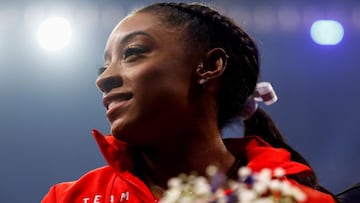Do Olympians get paid? How much do they get for winning medals?
Ahead of the start of the Tokyo Olympics, we take a look at how much athletes can earn from competing at the Games.


Athletes don’t get paid for taking part in the Summer or Winter Olympic Games, but do tend to receive a monetary reward from their country’s Olympic committee if they win a medal.
US Olympians paid $37,500 for every gold medal
In the United States, for example, the US Olympic and Paralympic Committee (USOPC) says it currently gives American Olympians $37,500 for each gold medal they win at the Games, plus $22,500 for every silver and $15,000 for every bronze.
In other countries, the prize fund for medal winners is significantly higher than that. According to a 2019 report by Money Under 30, Singapore pays Olympic athletes $1m for every gold, while Indonesia dishes out cheques for just under $750,000 to each event winner.
The International Olympic Committee (IOC) doesn’t make any prize money available, though. The body restricts itself to handing out medals to the three highest finishers in each event, and sending an Olympic diploma to the top eight.
Endorsements a source of income for some Olympians
Olympic athletes can also earn money from endorsements. For example, American gymnastics star Simone Biles, who won four gold medals at Rio 2016, is one of 102 international Olympians in Tokyo who are being supported by Visa. Furthermore, she recently parted company with sportswear giants Nike to sign a sponsorship deal with Athleta, part of the clothing company Gap.
At the very top end of the scale, Jamaican sprint legend Usain Bolt, an eight-time Olympic gold medallist, has pulled in over $30 million a year from endorsements.
And a recent rule change by the National Collegiate Athletic Association (NCAA) means athletes competing at the Olympics can now benefit from endorsements and remain eligible to play US college sports. Previously, they would have had to turn professional, in the process losing their eligibility to be a part of the college system because of the NCAA’s “principle of amateurism”.
However, many Olympians who have not reached the levels of prominence enjoyed by the likes of Biles and Bolt are not able to count on endorsements for income - and have a much tougher time getting by.
Performance-based stipends
In the US, athletes can get performance-based stipends from the USOPC to help them cover their year-round living and competing expenses, with the amount they qualify for dependent on where they place at a year’s major championships. Meanwhile, the USOPC said last October that around 1,200 American athletes were to be given a supplementary grant of just over $1,100 due to the impact of covid-19 on their income in 2020.
But in an interview with Forbes this week, Zaileen Janmohamed of US Olympic and Paralympic Properties (USOPP) estimated that around 60% of Team USA’s athletes in Tokyo have an annual income of less than $25,000 - scarcely enough to pay for food and rent, let alone their athletic careers.
Talking to CNBC in 2018, Olympic skater Mitch Whitmore spoke of the pressure of relying on performance-dependent USOPC stipends just to be able to make ends meet. "You want it to just be about the competition," he said. "But… you slip, or just have some little thing go wrong, and it’s hard to eat for several months." Athletes have also turned to crowd-funding to raise money, or have been forced to squeeze part-time jobs into their demanding training schedules.
"A difficult road"
Related stories
This month, American sprint kayak athlete Shaye Hatchette told Vice of the financial difficulties she has faced in her bid to reach Tokyo 2020, and the challenge of earning as an Olympian. "Everything leading up to going to the Olympics is completely self-funded," she said. "Once you make it to the Olympics your travel expenses are paid for, but you won’t make money off of it unless you medal or get sponsorships from outside the United States Olympic and Paralympic Committee. It’s a difficult road."
In April, Hatchette was forced to launch a GoFundMe page to raise money to cover the costs of travelling to, and competing in, Olympic qualifying events in Hungary and Russia. “The upcoming expenses to race internationally are going to be a total of $4,500,” she wrote. “Right now, I do not have the funds to meet these expenses which is why I need your help.”

